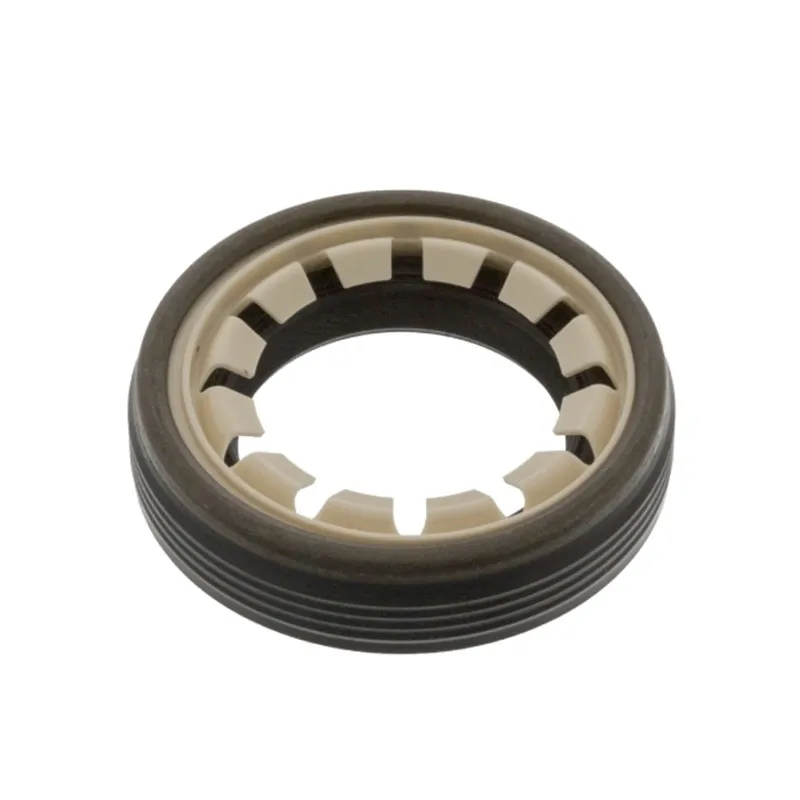Oil Filter Gasket for Enhanced Sealing and Performance in Engine Maintenance
Understanding the Importance of Oil Filter Flange Gaskets
In the realm of automotive engineering, every component plays a crucial role in ensuring the smooth operation of a vehicle. Among these components, the oil filter flange gasket often goes unnoticed, yet it serves a vital function. This small but significant part is pivotal in maintaining the integrity of the oil filtering system, ultimately protecting the engine from potential damage.
What is an Oil Filter Flange Gasket?
An oil filter flange gasket is a seal that sits between the oil filter and the engine block. This gasket is essential for creating a tight seal that prevents oil from leaking out of the connection point. Over time, exposure to high temperatures and various engine oils can cause the gasket to wear out, harden, or become brittle, resulting in leaks.
The Importance of a Proper Seal
The primary function of the oil filter flange gasket is to ensure that the oil filter is securely fastened to the engine. When the engine is running, it operates under varying levels of pressure and temperature. A secure seal prevents oil from escaping, ensuring that the oil circulates effectively through the engine. This circulation is crucial as it lubricates the moving parts, reduces friction, and helps cool the engine components.
Leakage caused by a faulty gasket can lead to oil starvation, where the engine does not receive adequate oil flow. This condition can cause severe damage, leading to increased wear and tear on engine parts, overheating, and ultimately catastrophic engine failure. Hence, maintaining the integrity of the oil filter flange gasket is crucial for the health of an engine.
Signs of a Failing Gasket
oil filter flange gasket

Knowing the signs of a failing oil filter flange gasket can save time and money. Common indicators include
1. Oil Leaks The most apparent sign of a faulty gasket is visible oil pooling around the oil filter. This can be identified during routine inspections or oil changes. 2. Oil Pressure Warning Light If the oil pressure drops significantly due to a leak, the oil pressure warning light on the dashboard may illuminate. This should never be ignored, as it signals a potential issue that needs to be addressed immediately.
3. Unusual Engine Noise Insufficient lubrication can lead to increased friction and unusual noises from the engine, indicating a lack of proper oil flow.
4. Overheating Engine If the engine is constantly running hot, it may not be receiving enough oil due to a leak, thus causing overheating.
Maintenance and Replacement
Regular maintenance is key to ensuring the longevity of the oil filter flange gasket. During oil changes, mechanics typically inspect the gasket for any signs of wear and tear. If there are any cracks or signs of leakage, it is advisable to replace the gasket immediately. Using high-quality gaskets that match the specifications of the vehicle can further enhance performance and prevent early failure.
Conclusion
While small, the oil filter flange gasket plays a critical role in engine performance and longevity. Ignoring the importance of this component can lead to severe engine issues that are costly and time-consuming to fix. Regular inspections, proactive maintenance, and timely replacements are essential to ensure that the gasket performs its function effectively. Emphasizing the significance of every component, including the often-overlooked oil filter flange gasket, is crucial in promoting a well-functioning, reliable engine. By understanding its role and maintaining it appropriately, vehicle owners can protect their engines and ensure they run smoothly for years to come.
-
Understanding the Front Main Engine Seal: Purpose, Maintenance, and Installation
News Jul.29,2025
-
Understanding O-Rings and Seal Rings: Types, Applications, and Custom Solutions
News Jul.29,2025
-
Understanding Crankshaft Oil Seals: Rear Seals, Pulley Seals, and Their Role in Engine Integrity
News Jul.29,2025
-
The Importance of Front and Rear Crankshaft Seals in Engine Performance and Oil Management
News Jul.29,2025
-
Crank Oil Seals: Functions, Types, and Cost Considerations in Engine Maintenance
News Jul.29,2025
-
A Comprehensive Guide to O-Rings and Seals: Types, Materials, and Global Applications
News Jul.29,2025
-
Mastering Diesel and Performance Engine Maintenance: A Guide to Critical Oil Gaskets
News Jul.28,2025
Products categories















